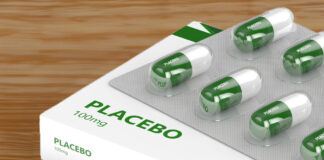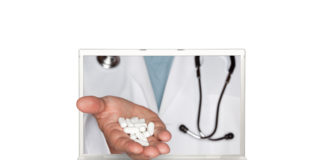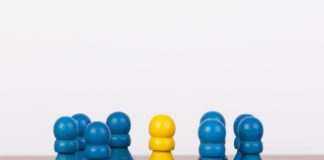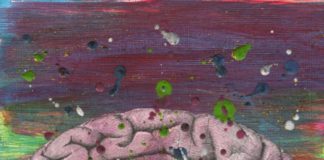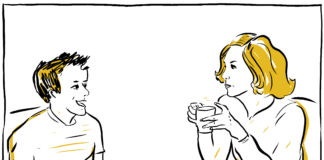Tag: placebo effect
More Evidence That Antidepressants Work Via Placebo Effect
Antidepressants were more effective for depressed patients who were more “optimistic.” Still, only 30% responded to SSRIs.
Placebo Effect—Not Antidepressants—Responsible for Depression Improvement
In adolescent depression treatment, those who received a placebo but thought they received Prozac improved more than those who received the drug and knew it.
Breaking Blind: Antipsychotic Drug Efficacy May Be Overestimated
Only 4 of 188 antipsychotic trials assessed blinding, and in all 4 cases, the blind was broken, potentially leading to an overestimation of the drug effect.
Psychotherapy Has an Enduring Effect on Depression—in Contrast to Depression Pills
A meta-analysis published last month showed that psychotherapy has an enduring effect on depression—in contrast to depression pills.
Researchers Push to End Placebo Run-in Periods in Antidepressant Studies
Meta-analysis finds that the placebo run-in methodology reduces the placebo effect and finds antidepressants to be less useful.
Allen Frances Takes on the Over-Prescription of Antidepressants
The prominent psychiatrist explores why antidepressants remain highly overprescribed and offers solutions to the problem.
John Read and Irving Kirsch – Electroconvulsive Therapy (ECT) Does the...
An interview with John Read and Irving Kirsch to discuss their paper which calls to prohibit ECT. This is because the negative effects of ECT are so strong, the evidence supporting it is so weak (especially in the long-term and beyond the improvement due to placebo) and there are other means of addressing the difficulties that the person is struggling with.
12 Essential Facts About Psychiatry
With these twelve facts, you are equipped to defend against the misinformation propagated by academic psychiatry, Big Pharma, and the laypeople they target. You are encouraged to use this knowledge to (firmly but respectfully) challenge statements you hear in passing or from loved-ones such as “He is mentally ill,” “I have a chemical imbalance and these drugs help correct it,” or any other commonly accepted falsehoods that the above facts expose.
Is There a Small Group for Whom Antidepressants Are Effective?
In a new study, researchers found no evidence of antidepressant group variance, which means that there's no particular group of patients who improve more than others on the drug.
Higher Drop-Out Rates for Those Taking Antidepressants
A review of 73 antidepressant studies finds that 12% more people drop out of clinical trials when taking antidepressants than when taking placebo, evidence that many find the adverse effects of antidepressants difficult to tolerate.
Researchers Fail to Predict Antidepressant Treatment Success
In a new study published in JAMA Psychiatry, researchers investigated whether they could use EEG (electroencephalograph) technology to predict whether people would feel better...
Positive Antidepressant Study “Misleading” and “Erroneous”
An analysis of last year’s positive finding in The Lancet about antidepressant efficacy shows errors, obfuscations, and misrepresentations.
The Impact of Regression to the Mean in Psychiatric Drug Studies
Could the statistical phenomenon of regression to the mean be responsible for the dramatic effects of placebo—as well as the supposed effectiveness of some psychiatric drugs?
“Honest” Placebos Effective in Treating Health Problems
From TIME: "The medical community has been aware of the placebo effect–the phenomenon in which a nontherapeutic treatment (like a sham pill) improves a...
The Power of Placebo is Strengthened by Having a Warm and...
The effect of individual expectations on treatment outcomes is found to be influenced by physician attributes.
The Placebo Effect is Amplified When Doctors Appear Likeable
From The British Psychological Society: A new study found that the placebo effect is enhanced by the impression of warmth and competence.
"Howe and her team...
Study Investigates Physicians’ Beliefs About Placebo and Nocebo Effects of Antidepressants
Surveyed doctors overestimate pharmacological effects of antidepressants and underestimate placebo effects.
A Radical Hypothesis: Give Patients Drugs They Know Don’t Work
In this interview for Vox, Ted Kaptchuk discusses his research on the effectiveness of giving open-label placebos - sugar pills that the doctors admit are...
Science Vs Podcast Looks at Antidepressants and Placebos
“Do antidepressants work? There’s an intriguing body of research that suggests the power of antidepressants doesn’t come from chemicals in the drugs, but from...
What Does Your Illness Mean?
Nine months after the birth of my first daughter, I felt off. Flatness, forgetfulness, cold, and tired. If I hadn’t discovered my formal diagnosis of an autoimmune thyroid condition, I could easily have been offered an antidepressant. Instead, I delved into the complex physiology of the immune system and its relationship to seemingly unrelated areas like the gut and brain. I learned pathways and the role of nutrients in their optimization. I changed my lifestyle, and my life changed as a result.
Exploiting The Placebo Effect: Deceiving People For Their Own Good?
There is an enormous irony in a psychiatrist using the epithet "thought police" to express censure, when it is psychiatry itself that routinely incarcerates and forcibly drugs and shocks people on the grounds that their thoughts and speech don't conform to psychiatry's standards of normality.
Mindfulness Pain Relief Distinct from Placebo Effect
A new study demonstrates that the practice of mindfulness may ease pain in a way that is mechanistically distinct from the placebo effect. Research, published in the Journal of Neuroscience, found that mindfulness meditation not only outperformed placebo and fake meditation for pain relief but that it also activated different brain regions than the placebo treatments.
Brain Response to Antidepressant Mirrors Placebo Effect
People diagnosed with severe depression show the same changes in brain scans when they respond to a placebo as they do when they take an actual antidepressant, according to a new study. Researchers also found that those whose symptoms were decreased by a placebo were more likely to report relief from antidepressant drugs.
Antidepressants’ Superiority to Placebo in Major Depression Challenged By Reanalysis
The October edition of the Journal of World Psychiatry, the 3rd ranked journal of Psychiatry, will publish a reanalysis of antidepressant efficacy versus placebo in major depression. When the researchers, Arif Khan and Walter Brown, analyzed the data from the FDA archives for antidepressants approved between 1985 and 1997, “it was evident that the conventional wisdom of 70% response with antidepressants was at best an overestimate.” In fact, “the magnitude of symptom reduction was about 40% with antidepressants,” compared to “about 30% with placebo.”


